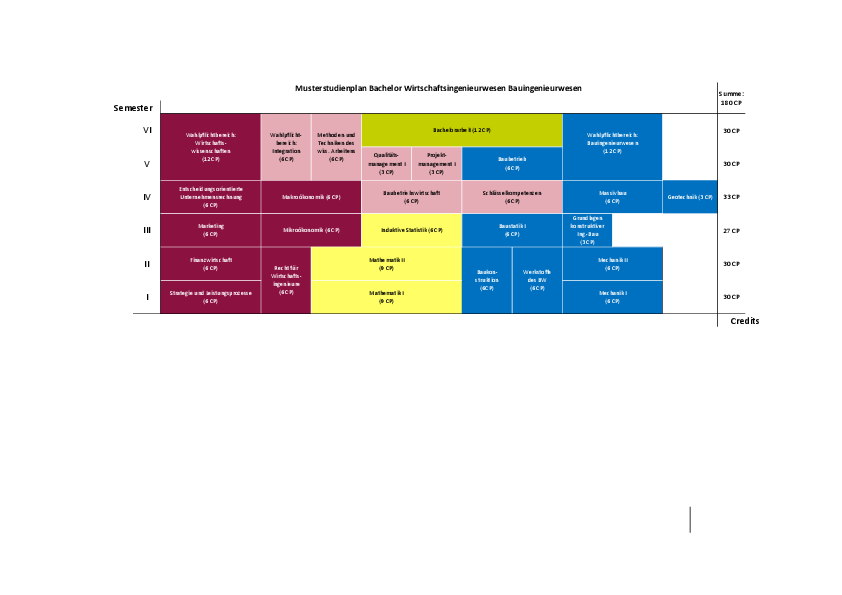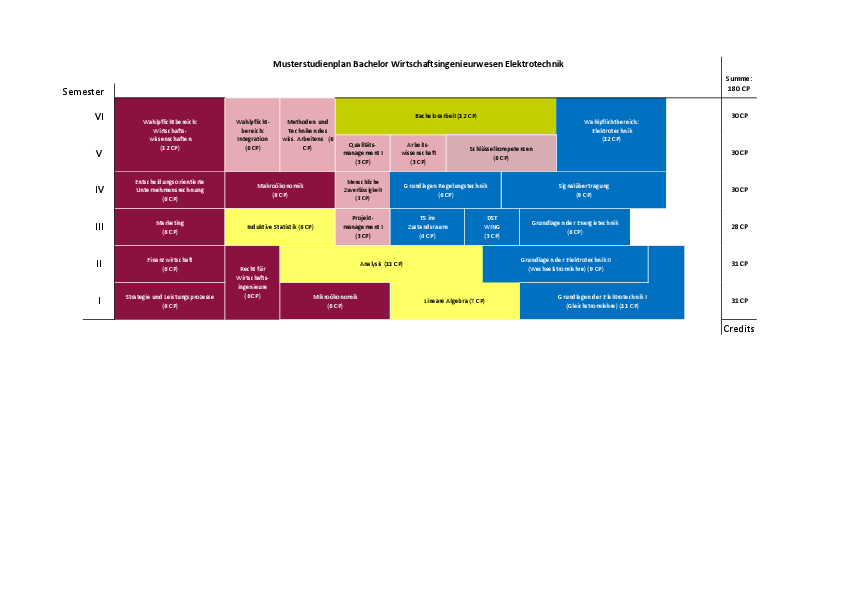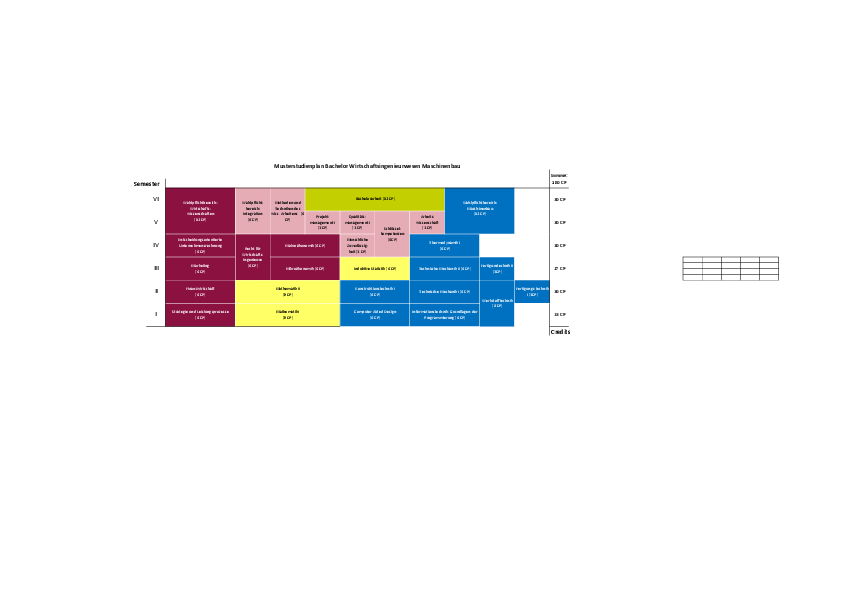How is the study program structured?
The content on this page was translated automatically.
The Bachelor's degree course in Industrial Engineering can be completed after six semesters. The special feature: You can design your studies according to your individual interests. Even before you start your studies, you can choose the focus (subject area) in which you would like to specialize: Civil Engineering, Electrical Engineering or Mechanical Engineering.
The first semesters teach the relevant economic fundamentals. All industrial engineers take the same courses - for example business administration, economics, accounting or law. So-called integration subjects provide an overview: Quality management, project management, the compulsory elective area and key competencies should be mentioned here.
The basic and in-depth engineering courses are based on your chosen specialization. In addition, you will acquire in-depth knowledge in individually selectable business and technical profiles.
International language and communication skills are also important for industrial engineers, which is why English-language courses are also offered. Presentations and group work in seminars promote students' organizational and presentation skills and prepare them optimally for their future careers. You will complete your studies with the successful completion of your Bachelor's thesis.
Study plans
In the area of economics, students can strengthen their individual, economic profile by selecting one of the following 5 specializations (elective area):
WW1: Management, Innovation and Marketing
WW2: Finance, Accounting, Controlling and Taxation
WW3: Digital Business
WW4: Sustainable Business
WW5: Economic Behavior and Governance
In this context, the economic focal points of the Bachelor of Science Industrial Engineering program are based on the content of the Bachelor of Science Business Administration program.
In engineering, B.Sc. students have a broad selection of engineering subjects in addition to the compulsory subjects, which can be chosen according to their own interests and inclinations. The following subjects are offered in this context at the University of Kassel:
- B.Sc. Industrial Engineering specializing in Civil Engineering,
- B.Sc. Industrial Engineering specializing in Electrical Engineering,
- B.Sc. Industrial Engineering specializing in Mechanical Engineering.
For the selection of the compulsory engineering elective modules in the 5th and 6th semester of the B.Sc. in Industrial Engineering and Management, the student must submit a study plan(form) to the Industrial Engineering and Management Student Advisory Service and then to the supervising engineering department. Further information can be found on the Examination Regulations and Module Handbook page.
Downloads
In the specialization area of the integration modules, students acquire in-depth knowledge in the subject areas that combine business-related professional and research content with technical content. To this end, students choose various modules according to their interests from the four main research areas of the Institute of Ergonomics and Process Management (IfA) as well as from the courses offered by the Department of Technology and Innovation Management and the Department of Digital Transformation Management:
- Work and Organizational Psychology
- Man - machine - systems engineering
- Project management in the digital transformation
- Quality and process management
- Technology and innovation management and entrepreneurship
- Management of digital transformation
Further information on the range of integration subjects can be found on the website of the Institute of Ergonomics and Process Management and on the homepage of the Department of Technology and Innovation Management, ) and the Department of Digital Transformation Management.
The bachelor thesis and the bachelor colloquium form the bachelor degree module. The bachelor thesis should be issued in the 5th semester at the earliest. Prerequisite for the registration of the bachelor thesis is the passing of the basic modules with a fixed number of credits of 126CP.
The processing time of the bachelor thesis is eight weeks and begins with the day of the announcement of the topic. The bachelor thesis must be presented in a bachelor colloquium. In addition to the candidate, the first examiner and an assessor take part in the colloquium. The Bachelor colloquium should take place no later than ten weeks after submission of the Bachelor thesis. Participation in the Bachelor Colloquium requires that at least the grade "sufficient" has been achieved in the Bachelor Thesis. The duration of the entire colloquium is 30 to a maximum of 60 minutes.
Current resolution on the teaching and examination system Industrial Engineering and Management (Bachelor and Master) as of 27.10.21.
1) The repetition requirement for the Bachelor and Master (PO14, §5(6)) is suspended for all examinations for the time being until the expiry of PO 2014.



